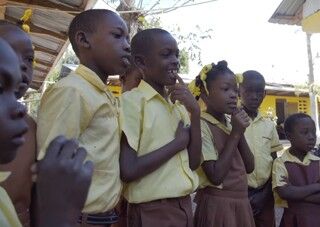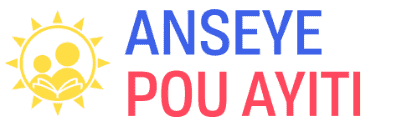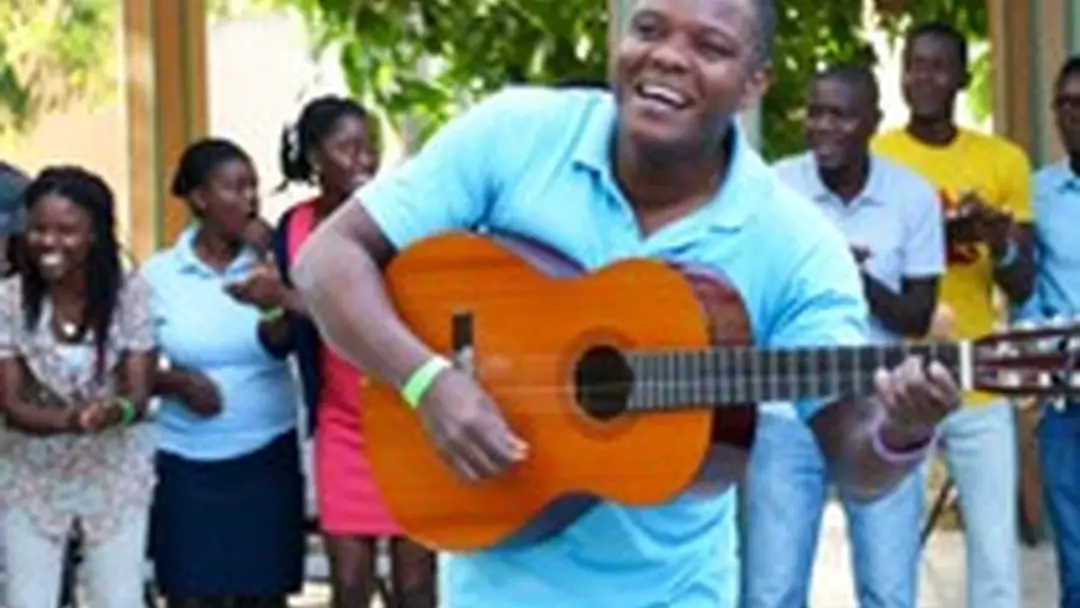Since the beginning of time, children's first place to receive an education in every society is at home. They grow up under the supervision of all adults at home, developing into a young man or woman. Home is where they learn all the right principles for developing their mind and body. Home is where they forge the personality, character, moral and spiritual sentiments necessary to live in society tomorrow. Their parents set an example of dignity and a sense of responsibility needed to work and care for their own family. It is around their parents and in social groups that children learn the difference between right and wrong. All families living in an area form a community. The community decides what good they would like to see for the children and what type of person they would like them to become tomorrow.
Ever since parents started leaving their homes early to go to work far away, they have handed some of their responsibilities as parents to the schools. Teacher-leaders also have to play the role of parents. Society gives them the right to guide the education of children. Children spend a lot of time in school for many families in our society. Their mission is to provide all of them with the same education required by our community. They are here to give the community skilled citizens and the right people to help them live in peace and well-being.
Today, nobody is happy with the way things are going. They are all blaming each other. The parents say, "We are not pleased with the type of person our children are becoming after getting an education." Most schools even say, "Parents have given up; we are not pleased with the types of children they are sending to our schools." Or, "Parents leave all the burden on us; they don't help to make our work easier."
That's why parents need to sit down with their schools to see what each party expects from each other and how they can help each other achieve the results they seek.
John Dewey says regardless of the country, all parents from all societies always aim for three outcomes for their children:
1. Develop all children's skills or knowledge from birth:
• develop their bodies, use the full potential of their bodies;
• develop mind, memory, judgment;
• develop all talents, creativity, and spirituality.
2. Transmitting the culture of the society in which they live:
• Transmit what they know, what they do, and how they do it to the children so that they can live in the country, in society;
• Transmit the language they speak, the way they speak it, what they believe, what they are accustomed to do, the way they see life, the way they see the world.
3. Develop their ability to function appropriately as active members of society:
• Participate in family and community activities;
• Carry out activities that will prepare them for the role they will have to play as they grow as members of society, members of a family, citizens of the country;
• Learn to use appropriately the services they need and what others may need;
• Learn to be good consumers and use the goods and services that exist in their communities.

Based on these results, parent-leaders can educate their children while participating in the school's work. They will do this by seeking information on how the school views education; meet with the teacher-leaders often to ask how the children are progressing; show interest by asking the student-leaders what they have learned every day; go to parent meetings when the school invites them; find out what the school needs; contact other parent-leaders to track the student-leaders' progress; volunteer when the school is conducting an activity; sit down with other parent-leaders, and the school administration to form a parent-leader association, etc.
Thus, the school is based on its real foundation, which has the following three pillars: "The school administration and Teacher-leaders, Parent-leaders and Community Members and the Ministry of Education and all other Actors. Then we will have a better outcome according to our expectations.

